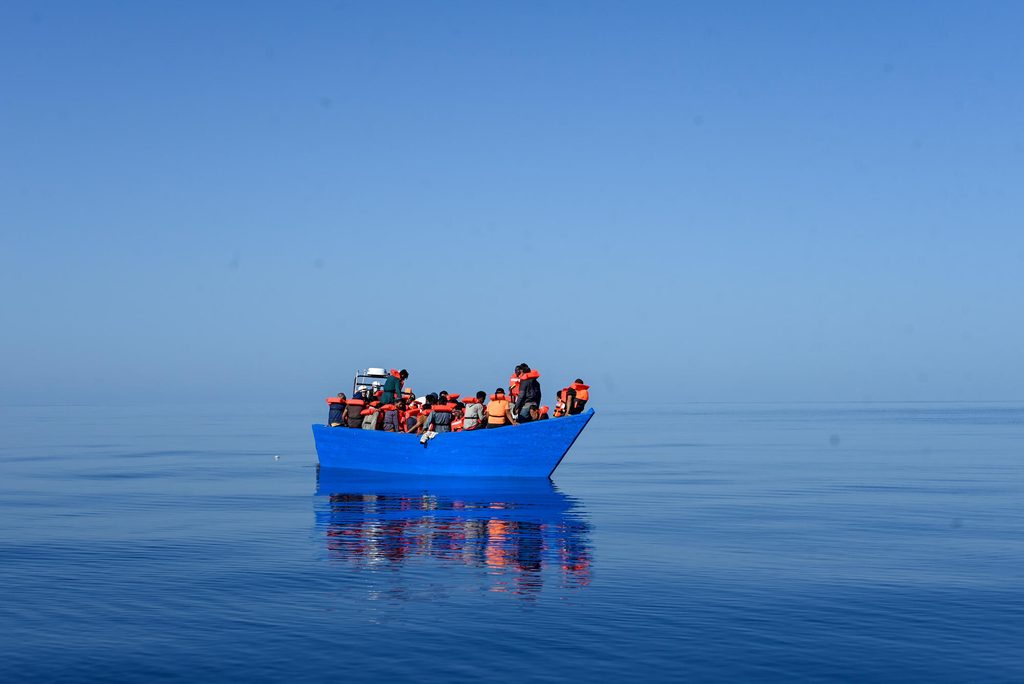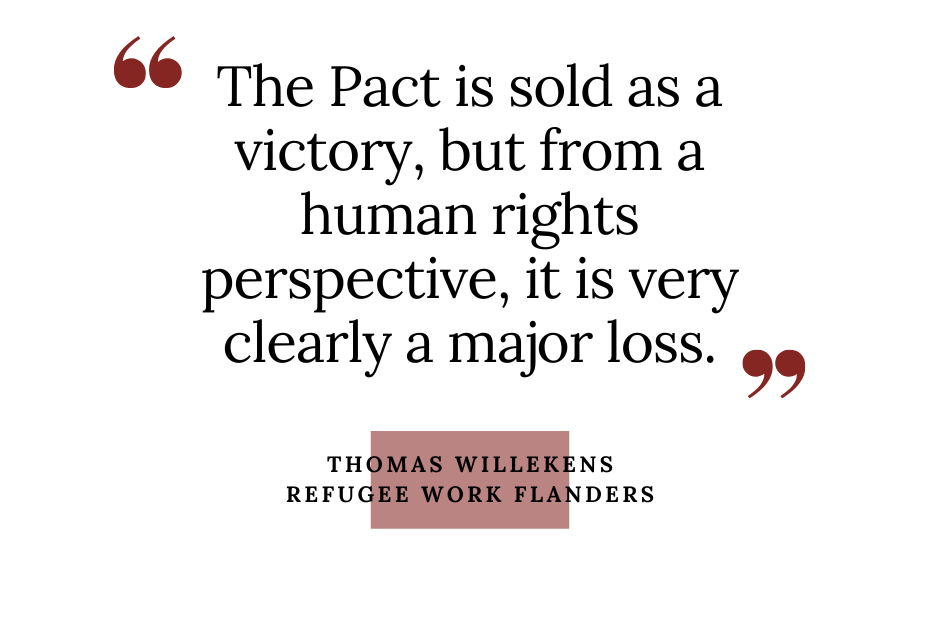The EU's new Asylum and Migration Pact has received mixed reviews from Member States, but the response from NGOs and civil society organisations is clear: it is inhumane and poses a major risk to human rights.
After years of discussions, EU Member States reached an agreement on the flagship Asylum and Migration Pact aimed at better managing the influx of migrants on Thursday evening, which included a flexible "solidarity mechanism" to return rejected asylum seekers more quickly and guarantee "proportional" distribution.
Following the announcement of an agreement, 11.11.11 (the Flemish coalition for international solidarity) and Refugee Work Flanders (Vluchtelingenwerk Vlaanderen) outright rejected the Pact, adding that it will only lead to humanitarian tragedies, with no guarantee of legal assistance or safeguarding of human rights.
"The Pact is sold as a victory, but from a human rights perspective, it is very clearly a major loss. What we are certain of now is that this will have a very negative impact on people seeking international protection," Refugee Work Flanders' Thomas Willekens told The Brussels Times.
More risks, bigger losses
He explained that the clear purpose of the Pact is to discourage people from undertaking the already dangerous journey into the EU.
"But when you know that, already, more and more people are fleeing their countries every year, a matter which will only worsen as a result of the climate crisis, it is very naive to think this Pact can stop people from migrating to and seeking asylum in the EU," Willekens said.
"Now, these people are going to take even more risks and counter even more dangerous situations to get here, which will likely result in an even bigger loss of lives."
Already between 2021 and October 2022, the International Organisation for Migration (IOM) documented at least 5,684 deaths on migration routes to and within Europe, with increases seen on routes across the Mediterranean, on land borders to Europe and within the continent.
Only making matters worse
The Belgian NGOs' criticism of the Pact focused on two concerns. The first is the fear of the large-scale and long-term detention of asylum seekers at Europe's external borders, added with the fact that children could be detained in border camps during these procedures.
"We are aware of the conditions faced by people during systematic detention in camps in hotspots like Greece and Italy, and the fact that children may also be put in this situation is incomprehensible," Willekens argued.
Meanwhile, they condemned the second part of the pact, the "infamous" solidarity principle, which Willekens said has only confirmed that asylum seekers are seen as merchandise in the eyes of EU policymakers. As Poland and Hungary voted against the Pact, Willekens questioned how the EU expects to convince them to either take in migrants or contribute to the solidarity principle.
"This way, they only end up putting even more responsibility on external border countries, and by doing so, make the current, already failing system even worse, and adding to the violence that we already see at the borders."
Related News
- 'Dirty deal': EU Migration Pact brings eight years of political deadlock to a close
- 'Violence, depression and suicide': Belgium's reception crisis far from over
This argument was mirrored by Ellen Desmet, a migration law professor at UGent, who noted that the criteria currently contained in the Dublin regulation will stay the same, which "means those countries will continue to be responsible for the majority of applications."
Desmet added that she questions how people will be "adequately received at the border procedure, because in practice they are likely to be systematically detained."
Willekens hopes that these proposals will be fixed in the upcoming trialogue negotiations with the European Commission, Parliament, and Council, and argued that Belgium, which will assume the presidency of the Council in January 2024, should play an important role in this.


